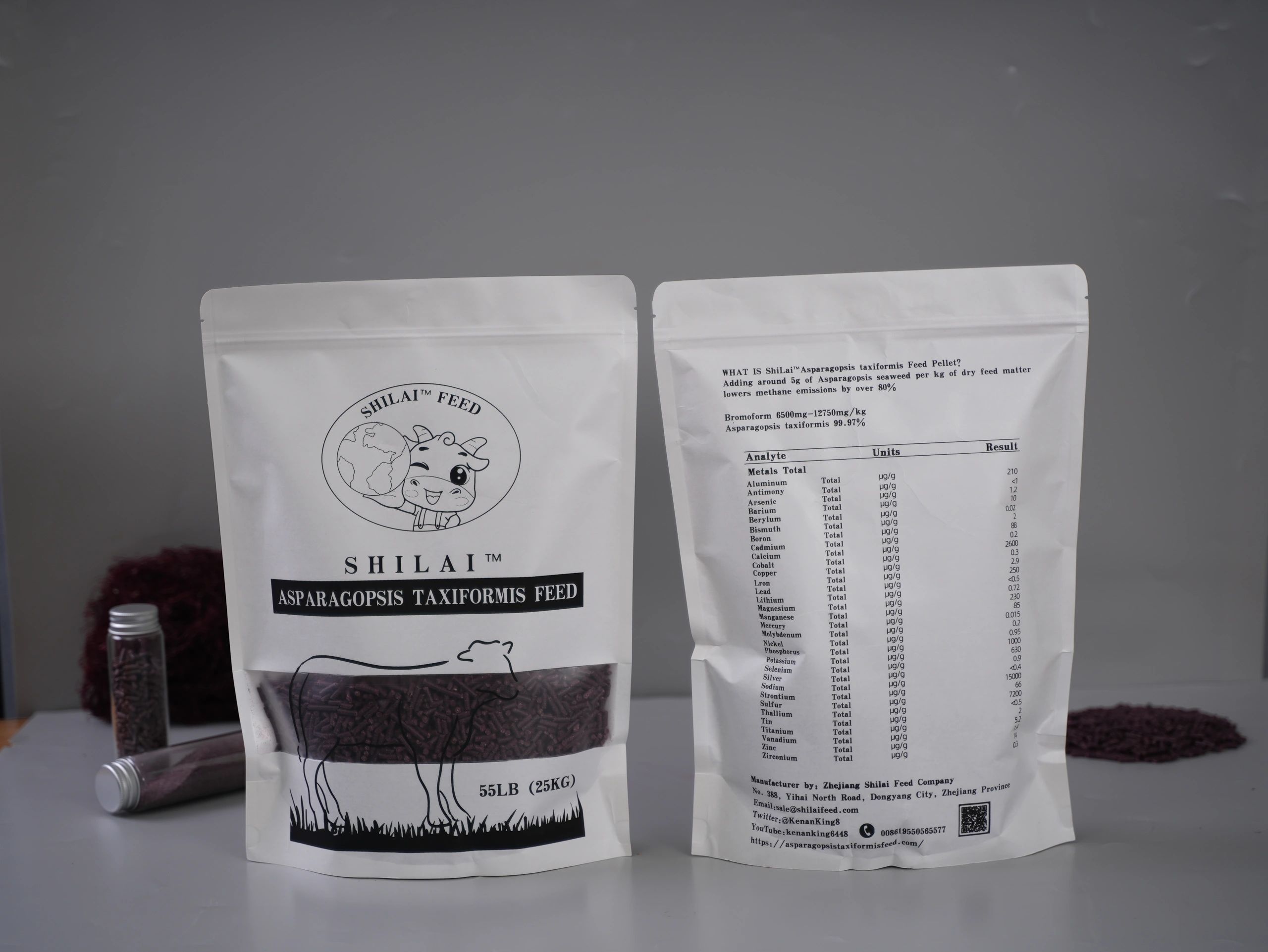
Worldwide agriculture accounts for a significant portion of greenhouse gases, with livestock as a chief contributor.
The climate impact of methane surpasses that of carbon dioxide on a per-molecule basis, underscoring the urgency to reduce it.
The red seaweed Asparagopsis taxiformis is under study for its capacity to reduce methane emissions from livestock digestion.
Contained within the alga is a bioactive molecule that suppresses methanogenesis in the rumen and reduces total methane emissions.
Incorporating Asparagopsis taxiformis into animal diets has produced promising early results that suggest a viable path to reduce farming-related greenhouse gas emissions.
- Moreover, Asparagopsis taxiformis offers several additional commercial and environmental advantages.
- Enhanced overall livestock health
- Creation of new jobs and revenue streams in the seaweed industry
While more research and development remain necessary to confirm long-term impacts, Asparagopsis taxiformis represents a highly promising sustainable mitigation tool.
Activating the Potential of Asparagopsis taxiformis Powder in Feed Formulations
Asparagopsis taxiformis prepared as powder or extract could enable broad deployment as a functional feed additive.
The seaweed offers a combination of nutritive and bioactive properties that benefit animal performance.
Employing A. taxiformis powder in feed mixes has achieved methane declines in trials and may improve micronutrient profiles.
More targeted research will help define optimal formulations, stability during processing, and sustained impacts on animal welfare.
The Role of Asparagopsis taxiformis in Shaping Sustainable Animal Farming

The crimson alga is attracting interest for its potential to tackle environmental challenges arising from traditional livestock systems.
Feed integration of the algae could contribute to significant methane declines and a lower environmental burden across livestock systems.
Scientific work suggests Asparagopsis can deliver both environmental and animal health/productivity advantages.
Large-scale implementation and chronic impact assessment remain to be proven, yet preliminary results are highly encouraging.
Reducing Enteric Methane by Adding Asparagopsis to Feed
The species offers a promising mechanism to curtail methane emissions originating from ruminant digestive processes.
The seaweed’s effect stems from its ability to inhibit methanogenesis, the microbial process that creates methane in the rumen.
- Trials and studies have repeatedly observed large methane declines with Asparagopsis supplementation.
- Using the seaweed in feed formulations is a sustainable pathway to cut enteric methane emissions.
- There is growing industry momentum toward trialing Asparagopsis as part of feed strategies.
Asparagopsis: The Seaweed Transforming Livestock Production
A new sustainability solution is emerging from marine resources: Asparagopsis taxiformis offers methane mitigation potential for livestock.
- By including Asparagopsis in diets, researchers have reported notable reductions in methane output with clear environmental implications.
- The approach may enable more sustainable food systems that reduce emissions while maintaining farm productivity.

As global efforts intensify to find sustainable climate solutions, Asparagopsis stands out as a novel and actionable option for livestock methane mitigation.
Improving the Performance of Asparagopsis taxiformis as a Methane-Mitigating Feed Additive
Research targets include processing optimization and dosage determination to increase A. taxiformis impact on methane reduction.
The Science Behind Asparagopsis taxiformis's Methane-Lowering Effects

The observed methane reduction results from the seaweed’s compounds that hinder the growth and function of methanogenic microbes.
The compound bromoform within the seaweed is a principal inhibitory agent against methanogenesis, and researchers are studying its dynamics and safety.
Adding Asparagopsis into Rations to Support Sustainable Livestock Systems
Asparagopsis offers both nutritive value and active molecules that together justify its consideration for feed formulations.
Asparagopsis integration may improve nutrient density, digestive efficiency, and deliver ancillary antimicrobial or immunomodulatory effects.
A Sustainable Future Built on Asparagopsis taxiformis
Asparagopsis taxiformis offers a natural pathway to mitigate climate impacts associated with livestock and contribute to sustainable food systems.
- In addition, the seaweed contributes essential nutrients and beneficial compounds to diets.
- Experts are studying how to deploy Asparagopsis across aquaculture, livestock, and feed manufacturing sectors.
Incorporation of the species into standard practices could yield notable environmental benefits for agriculture.
Benefits of Asparagopsis Feed Additive on Animal Health and Productivity
The species is emerging as a feed supplement that can deliver environmental benefits plus gains in animal welfare and productivity.
Experimental results show enhanced nutrient utilization and feed conversion in animals fed Asparagopsis, aiding growth and condition.
Asparagopsis contains compounds with antioxidant and immune-modulating potential that may enhance resilience and reduce disease incidence.
Growing market and regulatory interest in emissions reduction underscores the potential role for Asparagopsis as development continues.
Methane-Cut Feed with Asparagopsis: Towards a Carbon Neutral Future
The farming sector faces mounting pressure to shrink its carbon footprint, and Asparagopsis offers a plausible mitigation pathway.
- The leading hypothesis is that the seaweed’s constituents suppress methanogenic microbes and disrupt methane synthesis in the rumen.
- The experimental record includes promising findings of large methane cuts when Asparagopsis is incorporated into feeds.
This feed innovation could help shift food production toward lower emissions and greater climate resilience.